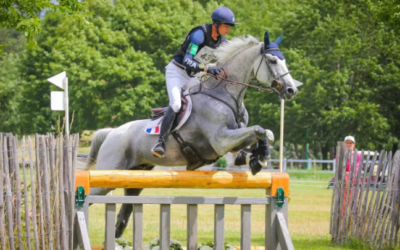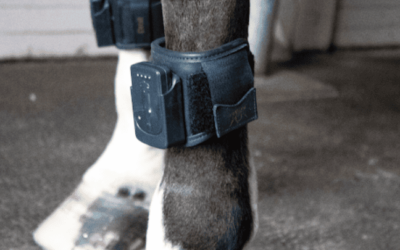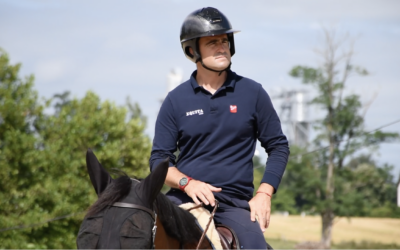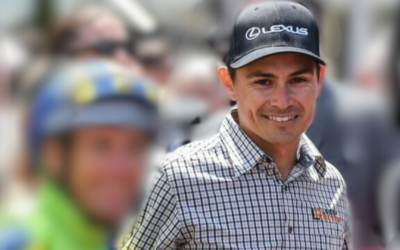EXPLORE
OUR BLOG
Here you will find information about performance and health measurements as well as tips about athlete horse health monitoring, telemedicine cases and equine well-being.

Subscribe to our newsletter
LATEST ARTICLES
ALL ARTICLES
Maxime Livio: How Equimetre and Equisym support the preparation of high-level horses
In the eventing world, the quest for performance relies on a balance between equestrian tradition and technological innovation. Maxime Livio, an internationally renowned rider and the number one French eventer, shares his approach to preparing his horses for major competitions such as the Olympic Games.
Joint surgery in athletic horses: advances, outcomes, compensation, and quantitative evaluation of post-operative locomotion
Surgery and joint health are essential to the performance and well-being of athletic horses. Racehorses, show jumpers and dressage horses are subjected to intense stress on their joints, making them particularly vulnerable to injury and pathology.
Fabrice Saintemarie: Preparation for the Mondial du Lion with Equimetre, the key tool for performance and prevention
Through specific training and the use of innovative technologies like the Equimetre, Fabrice works to ensure both the performance and well-being of his horses, while minimizing the risk of injury.
Optimizing Equine Performance: Using EQUIMETRE VET in Veterinary Medicine with Claudine Anen
In equine veterinary medicine, optimizing the performance of sport horses is essential to ensure their well-being and success in competition. Claudine Anen, a veterinarian specialized in equine sports medicine, shares her experience with the EQUIMETRE VET.
Olivier Perreau, bronze medallist in team show jumping: prevention, a key to high-level competition with EQUISYM
We had the chance to interview professional show-jumper Olivier Perreau about his use of EQUISYM. Discover how new technologies can be perfectly integrated into the practice of high-level horse riding.
Giordana Girini, integrating the Advanced program into her vision of a future data analyst
Giordana, an equine science and osteopathy enthusiast, tells us about her journey, her experience with the Advanced Program, and how she integrates data into her daily life.
The silver medallists share their preparation with EQUIMETRE Vet
Find out how EQUIMETRE helped French eventers prepare for the big event ahead.
How Jarrad Cook, data analyst at Kris Lees Racing improved his data knowledge with the Advanced program
Jarrad Cook, data analyst at Kris Lees Racing in Australia, shares his experience of the Advanced program and how he uses the Equimetre in his daily work.
Laura Fitzharris: how does the Advanced program integrate her veterinary practice?
Laura tells us how the Advanced program has enriched her veterinary practice and enabled her to integrate data into the monitoring of athlete horses.
.









